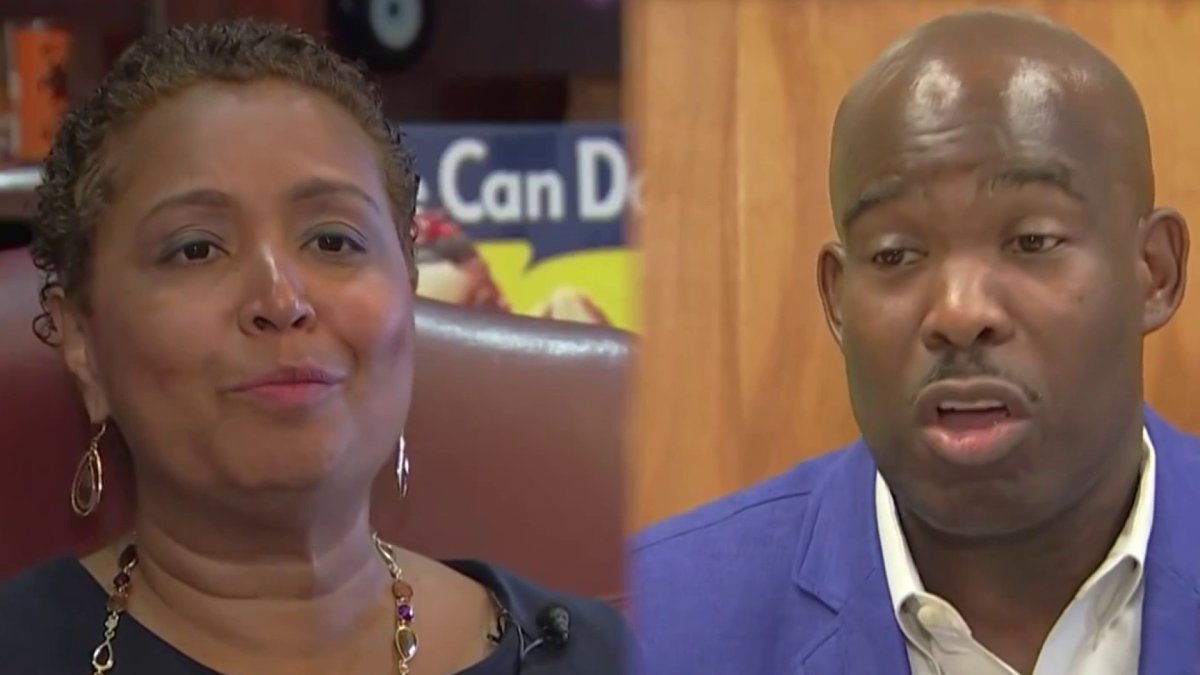
City council members Maria Quinones Sanchez and Derrick Green announced Tuesday that they would be stepping down from their position on city council to run for mayor of Philadelphia. NBC10’s Rosemary Connors has more from the candidates on what their plans are for the city.
Maria Quiñones Sanchez and Derek Green announced Tuesday they're leaving their seats on Philadelphia City Council to run for mayor in 2023.
Their resignations are not likely the last ones on City Council. At least three others on the local governing body could also quit in the coming weeks as the race to succeed Mayor Jim Kenney heats up. Kenney cannot run for a third term.
If as many Council members resign as is expected by political insiders, that could leave six or seven of 17 Council seats empty for months. Here's a look at options for filling those seats in order to maintain a reasonable representation of Philadelphia residents by the municipal government.
How Much Longer Do the Resigning Council Members Have Left on Their Current Terms?
Get Philly local news, weather forecasts, sports and entertainment stories to your inbox. Sign up for NBC Philadelphia newsletters.
All 17 City Council seats -- 10 districts and 7 at-large -- are up for election in 2023, with the next City Council to be seated in January 2024. So the three resigning lawmakers left with about 15 months to go in their four-year terms.
What Is the Fastest Way to Fill the Empty Philadelphia City Council Seats?
Council President Darrell Clarke has the power, through the city's Home Rule Charter, to call for special elections to fill empty Council seats. He is not tipping his hand just yet, but a source close to him told NBC10 on Tuesday that Clarke is most likely to call for a special election in November to fill Quiñones Sanchez's now vacant 7th District seat.
The Home Rule Charter, which is the city's constitution, gives Clarke wide discretion in choosing when to hold a special election. But it also specifies that it's his "right and duty" to fill those seats within a reasonable timeframe.
Under the law, he can call for a special election no less than 60 days ahead of the next primary, municipal or general election. That gives him a few weeks to decide whether to hold special elections for all of the now vacant seats or some of them on the Nov. 7 general election this fall.
Could Council President Clarke Wait to Fill the Empty City Council Seats?
Clarke may be in less of a hurry to fill the seats left vacant by Green and Allan Domb, who also recently resigned ahead of a potential mayoral run, because they are at-large, meaning they represent the entire city.
Earlier this year, Clarke expressed an urgency to fill former Councilman Bobby Henon's vacant seat because Henon represented a district. Henon resigned after being convicted in federal court for public corruption.
A special election was held in the May primary.
“It is vitally important that the people of the Sixth District have full representation in City Council," Clarke said in March.
Clarke may wait until the May 2023 election to hold special elections for all of the vacant at-large seats because other at-large Council members, like Democrat Helen Gym and Republican David Oh, are also believed to be considering runs for mayor next year.
Waiting would allow Clarke to announce special elections for every Council member who enters the mayoral race.
2023 Mayor's Race
The exodus does not appear to be over. Gym, the top vote getter among all Council members who ran in 2019, has long been expected to declare her candidacy.
She and others are following a well-tread path in recent Philadelphia history. The last three mayors, including Kenney, served on City Council.